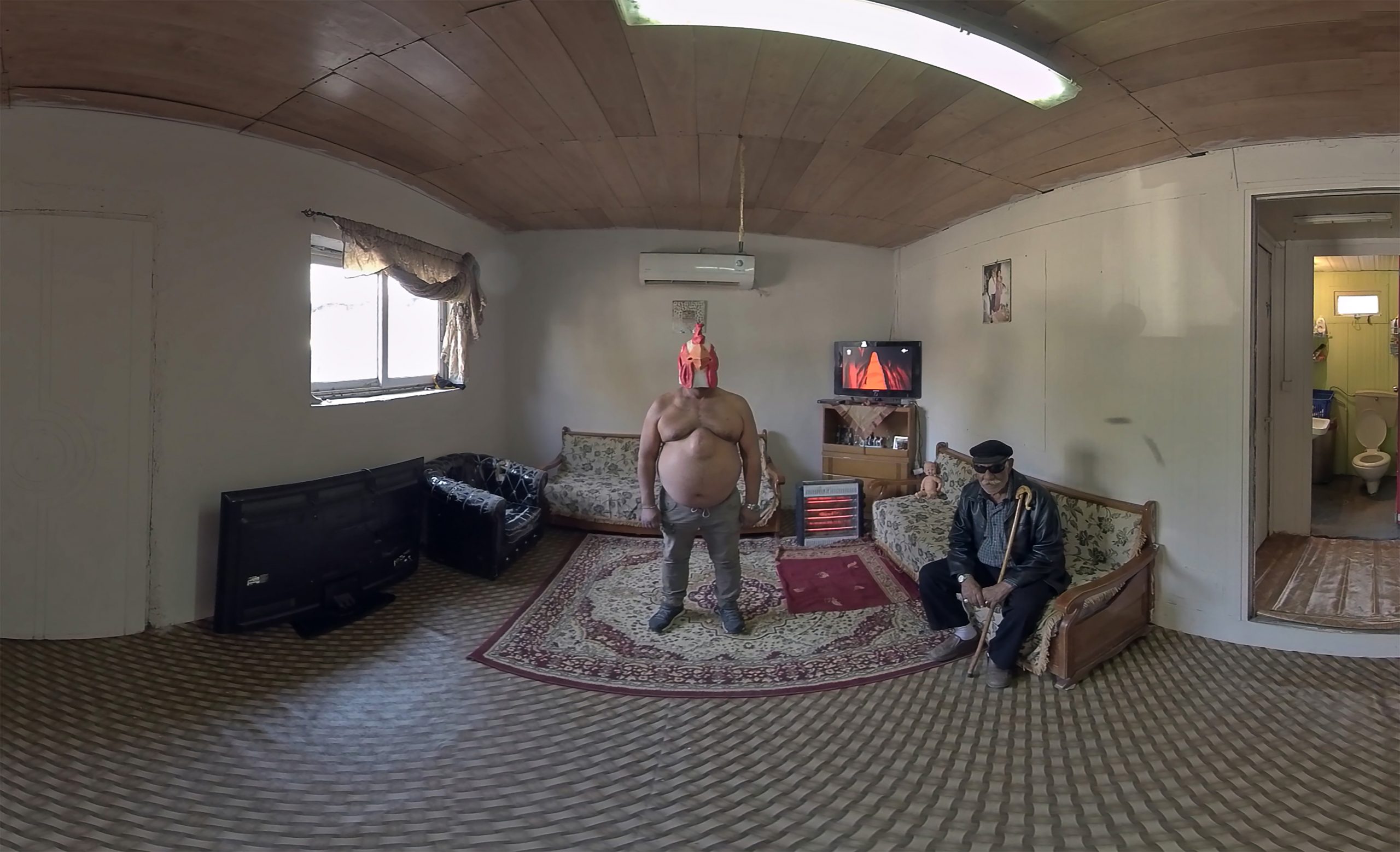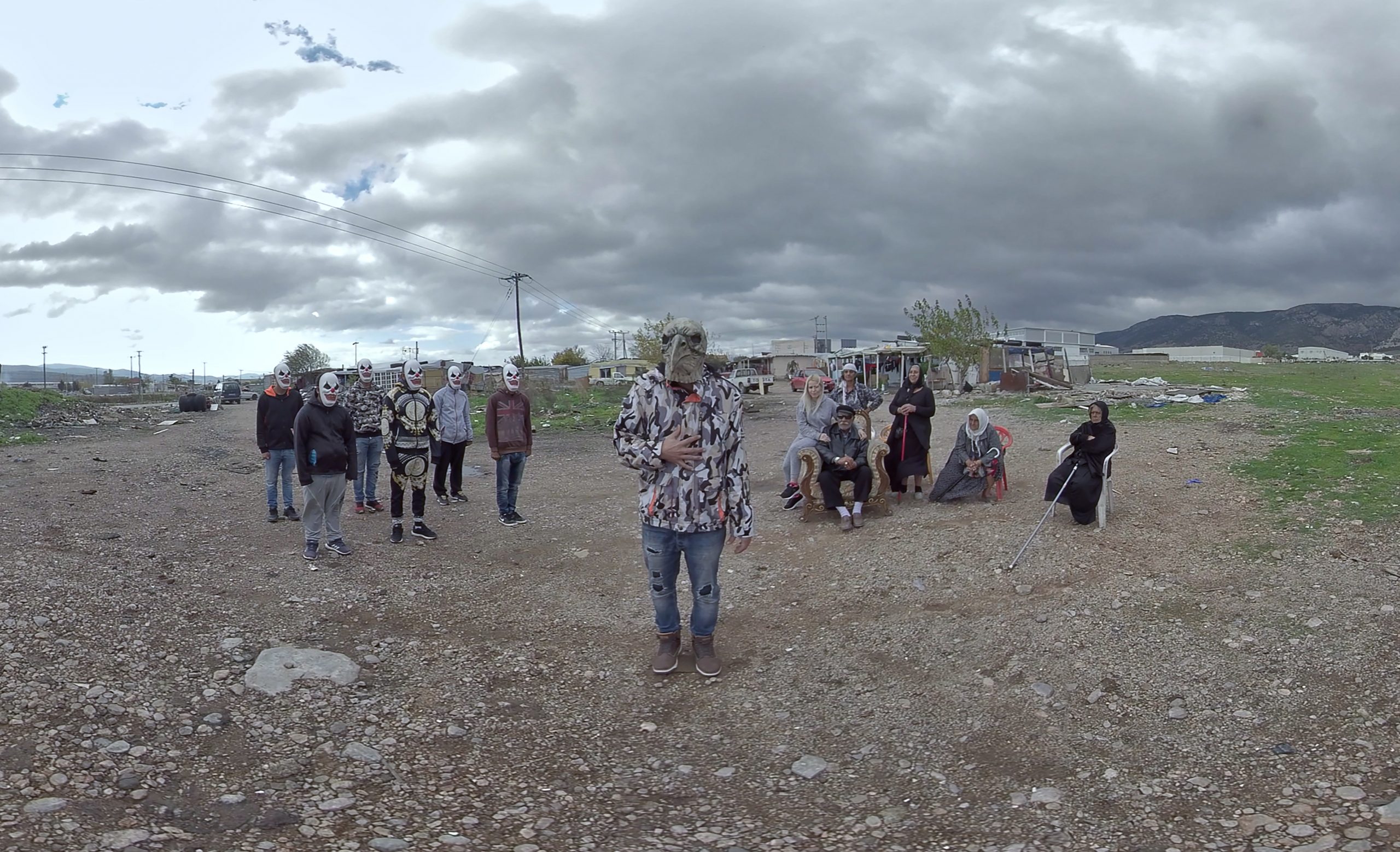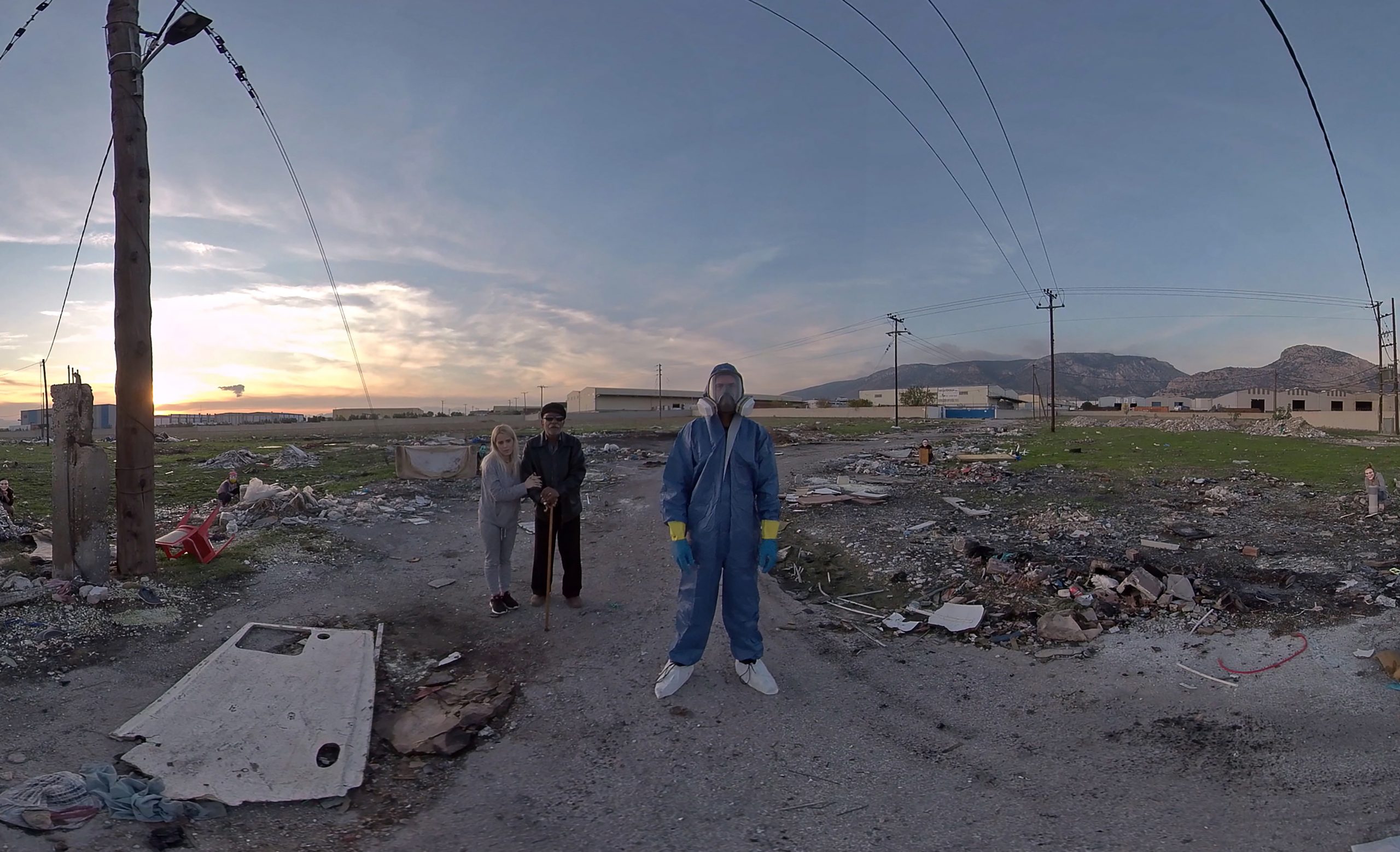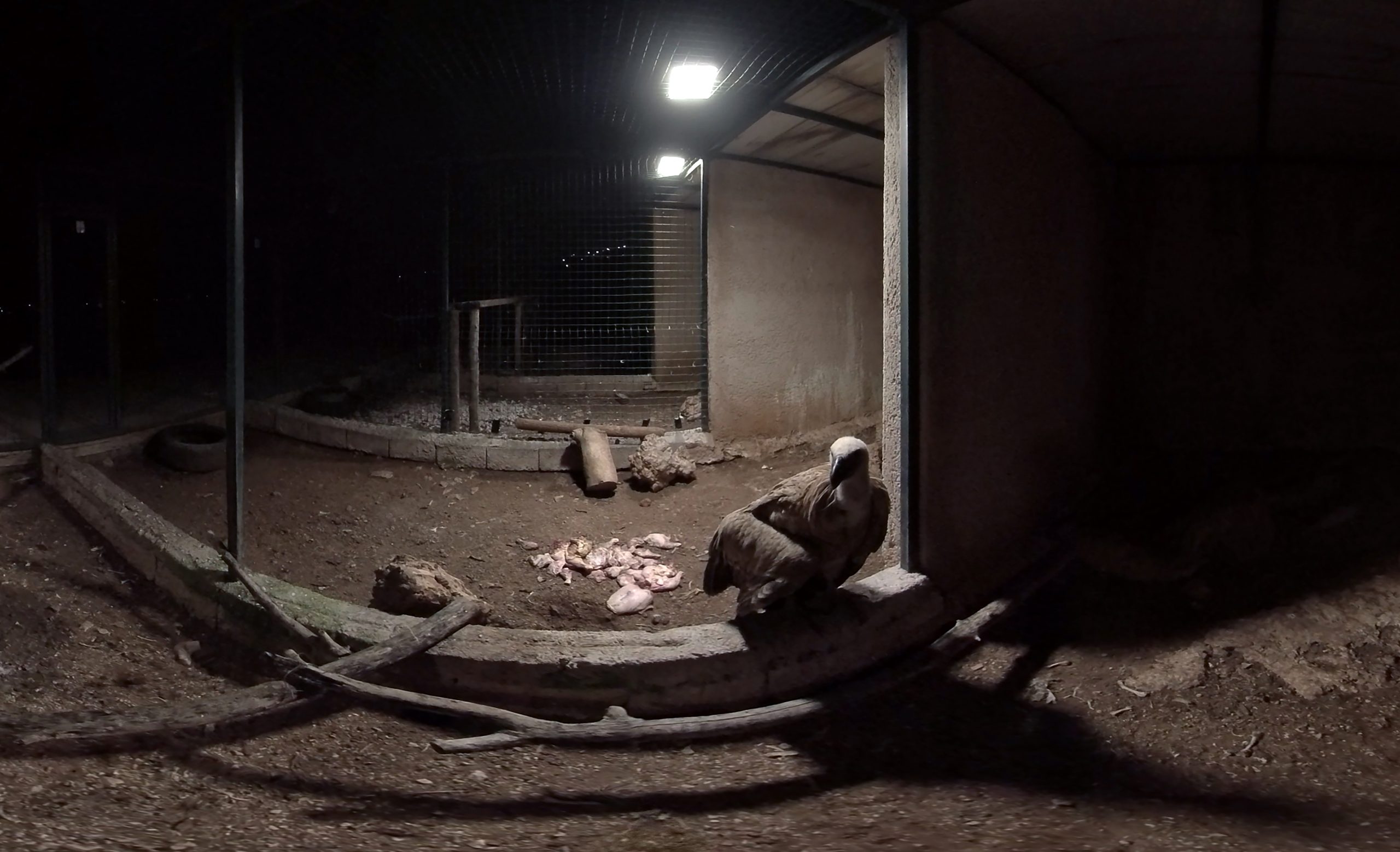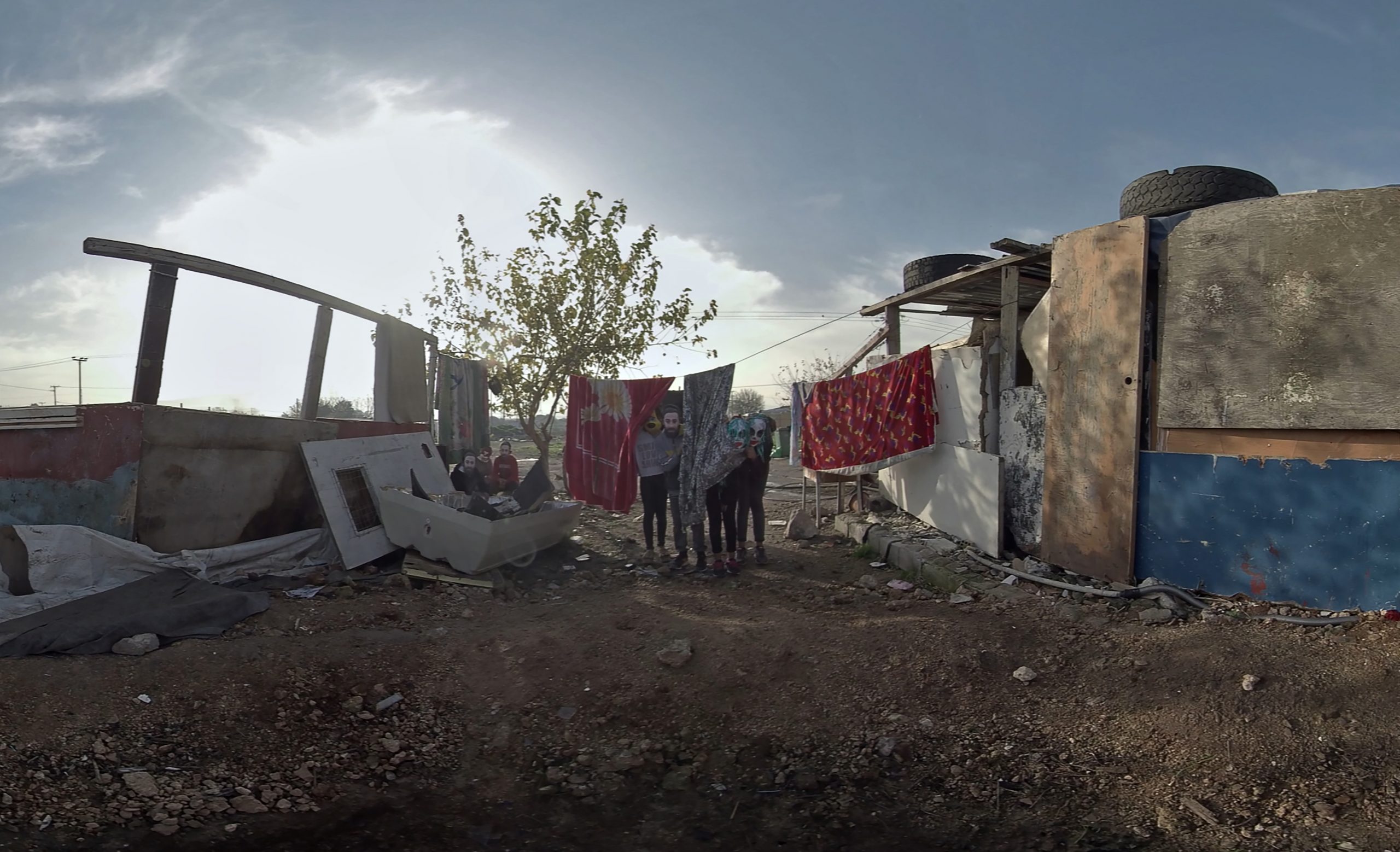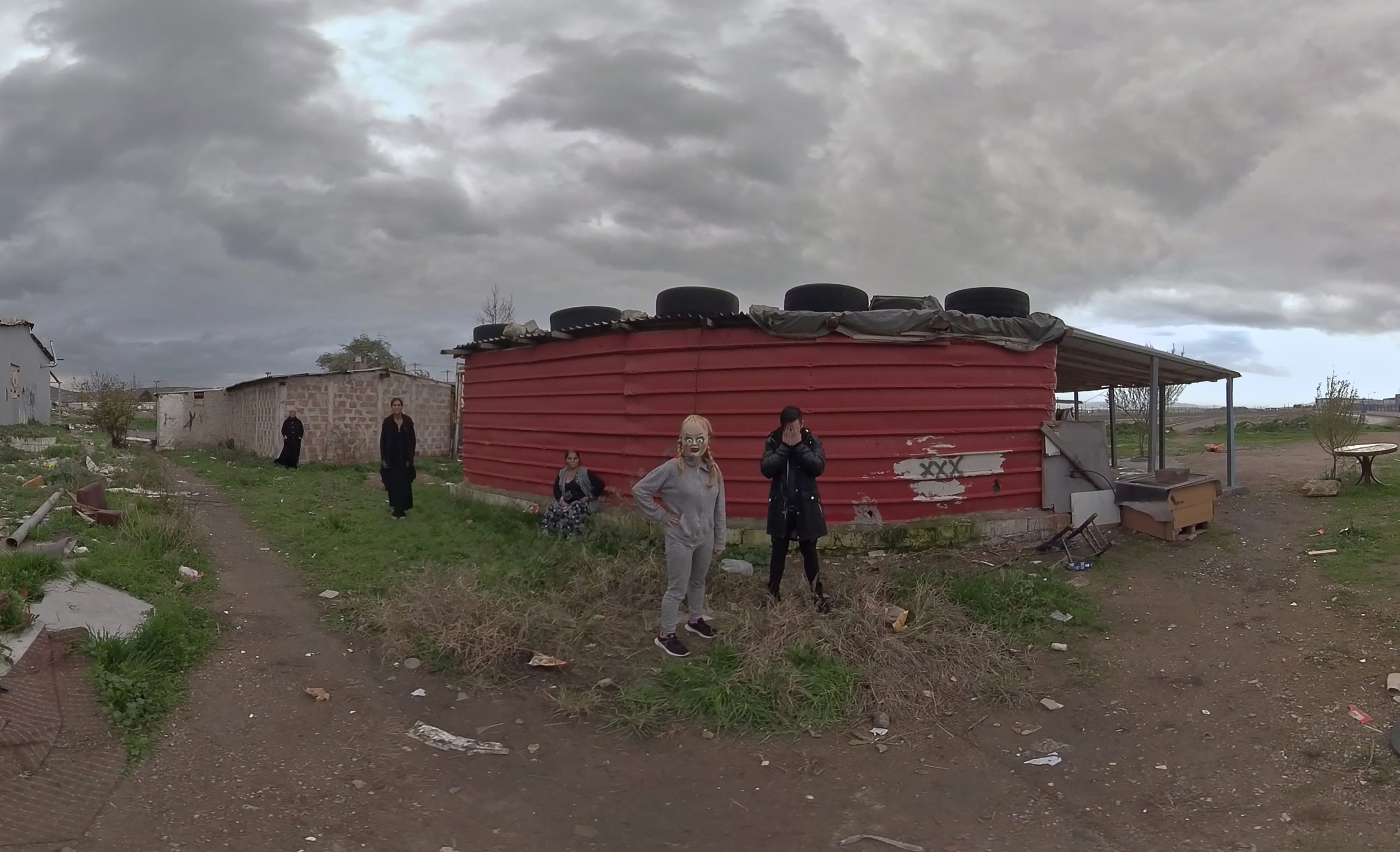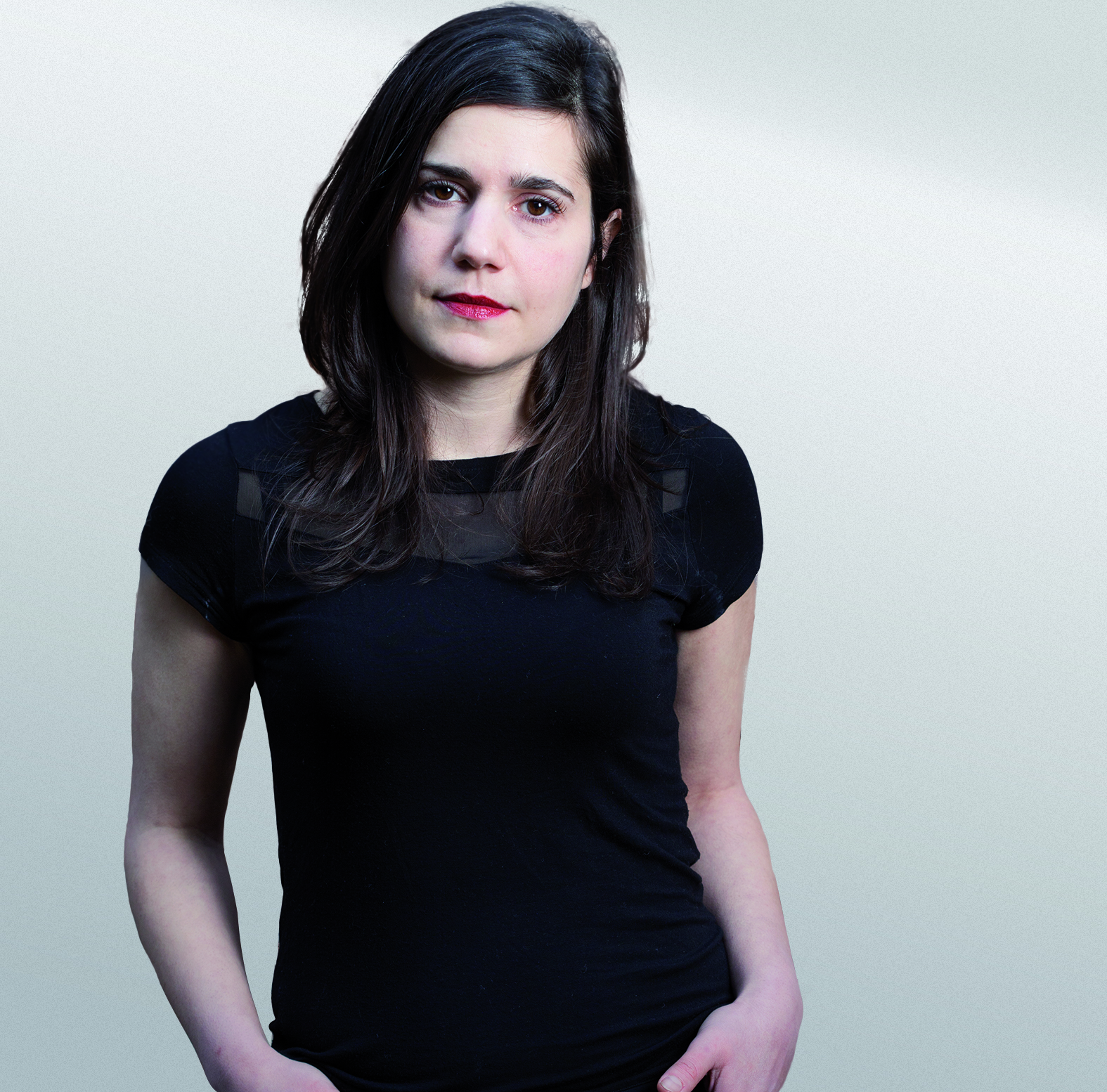Features #6 — April 2022
Loukia Alavanou in conversation with Nicolas Vamvouklis
This year, you are representing Greece at La Biennale di Venezia with the work “Oedipus in Search of Colonus.” What will the visitor experience inside our national pavilion?
The viewers will enter a collective space where they will experience a sound installation that will place them into a state of loneliness. Therefore, they will be ‘together’ and ‘alone’ at the same time. The way we are forming the pavilion is very much based on acoustics; the sound design is ambisonics (directional sound), and the interior of the space will be surfaced with heavy sound absorbent material. In other words, the sound will be experienced as if it is playing directly into the participants’ ‘inner ear.’
This will be the preparation for the VR360 film. The participants will then individually enter the virtual space of the film while sitting on specially designed chairs, based on the “posture chair for digital projections and immaterial environment” by the utopic architect of the 1960’s Takis Zenetos.
Which is the line that connects Sophocles’ tragedy, written some 2500 years ago, with the sociopolitical issues of our days? How about the protagonists of your adaptation?
The quest of Oedipus in “Oedipus at Colonus” is to find a place that will host him and allow him to die peacefully by securing a grave, safe from vandals. This wrecked old man is a political exile, expelled from Thebes, his home. And although Creon -his brother in law and ruler of Thebes- is the one who expelled him, he later comes and asks to take Oedipus back, only because he knows that Oedipus’ grave has the supernatural power of saving one’s city from enemies. To put it another way, he is used for political mileage, not unlike refugees today arriving in Europe from the Middle East or Africa. They are treated more like a ‘trading’ pawn between European countries than humans worth aid and support.
The protagonists of my adaptation are all Romani amateur actors. I found so many parallels between their lives and that of Oedipus, who was a nomad himself. In the community that we filmed, many Oedipal stories were unfolding in front of our eyes: rivalries, vendettas between families, incest, wars for leadership, and a lot of injustice. These were also the tragic themes of the play. This is why I call the film “docufictional,” the actors’ real life fed into the story.
You have previously mentioned that in the context of this major art exhibition, you “wish to defy all fashions and trends and swim against the current.” In which ways does your film achieve that?
The film puts the viewer in a state of solitary viewing, and time is experienced differently within this 360° context. One loses the sense of real time; it is ‘symbolic’ time that is more important here. Even literally, the viewers will not be able to look at their watches while experiencing the film. Given that in Venice, visitors usually run around to absorb and consume as much as possible, as if being in a funfair, I believe this type of work does “swim against the current” somehow.
One of my favorite works ever shown at the Biennale was Christian Marclay’s “Clocks.” A totally different example, of course, but I loved the fact that his 24-hour long film was playing even when the exhibition was closed.
Heinz Peter Schwerfel is a German curator specialising in moving image and a filmmaker himself. How did you work in bringing together this show?
Schwerfel has influenced my work from its early stages. He is the one who first suggested to me to experiment with VR. So I asked him to curate this show. I like the fact that his interests are so interdisciplinary. I really do not know what to answer when asked if I am an artist or a filmmaker.
I would like to know more about your selection of VR360 as a medium; I can only imagine the challenges and the possibilities of this new technology. So, was it love at first sight?
Indeed! I have always used my dreams as a moto in my work; most ideas were initiated by dreams I had. To me, VR is akin to the space of dreaming, and it gives an artist space which she can relate to the state of dreaming because of this loneliness. Also, the 3D element makes images and sounds really present, like in dreams. I love the theme of the show this year, the “Milk of Dreams.”
Another element that drew me into VR, particularly for this film, is the medium’s theatricality. The camera is spherical and creates a 360-degree space when shooting, like an amphitheater. So the medium is closer to theatre than to cinema, in a way.
Could you tell me a bit about VRS/Virtual Raw Synergy? How do you imagine the future of your initiative, balancing between art, technology, and business?
My dream is to direct and produce VR360 films that are surreal, absurd, and experimental. Mainly by women, but also by men. I believe that this medium is super powerful in the hands of artists, and we should be one step ahead from the dangerous metaverse, not so much in terms of ‘technological’ advancement but in exploring ways of addressing a wider audience in order to subvert the mainstream narratives fed to us.






















